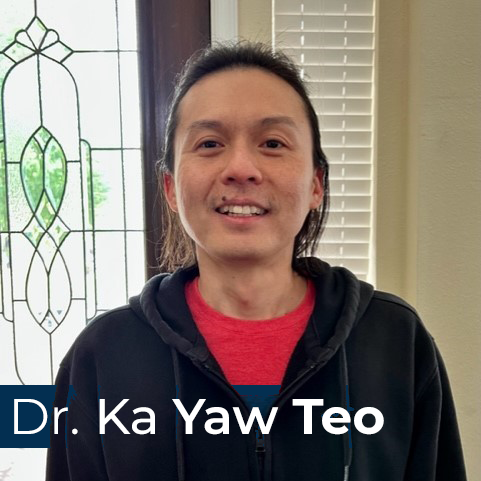Interview with CS PhD Alumni Series: Dr. Ka Yaw Teo PhD’2023

PhDs are an essential part of the knowledge economy. Completing a PhD is all about creating fresh knowledge, discovering new concepts, and developing new skills. It is a degree meant for those who seek a greater depth of knowledge in a specific area. With the following interview series, we hope to engage students who want to learn more about the PhD program by learning about those who have gone through it. We recently spoke with 2023 CS PhD graduate Ka Yaw Teo. Below is our conversation.
What was your primary area of research? What type of research were you doing while you were obtaining your PhD?
My current research interest lies in computational geometry, which involves designing algorithms and data structures to solve computational problems efficiently by exploiting their intrinsic geometric properties. I am also particularly interested in applying geometric algorithms to address problems in biomedical science and engineering.
During my PhD studies, I have undertaken a range of research projects, encompassing both theoretical and practical aspects. These research pursuits include:
- A closer look at the closest pair-of-points problem.
- Solving a motion planning problem in robotics.
- Creating a solution for a biomedical image classification problem in cancer research.
- Addressing a series of related facility location optimization problems.
Please explain your thesis in layman’s terms.
The central focus of the dissertation is to investigate a chosen set of computational problems in two subject areas – 1.) robot motion planning and 2.) facility location theory.
In particular, we develop efficient algorithmic solutions to these problems using concepts and techniques from computational geometry.
In motion planning, we aim to compute a sequence of actions for a robot to move from an initial to a desired final state without colliding with obstacles. In facility location theory, we seek to determine an optimal placement for a facility by minimizing a specific spatial objective criterion. Most problems in both of these areas are well suited for geometric analysis and computational techniques, as physical entities such as robots, obstacles, and facilities can be modeled as geometric objects in real space. The problems investigated in the dissertation are motivated by their respective real-world applications. Additionally, we aim to advance their theoretical bases and understanding through a geometric lens.
What inspired you to pursue a PhD?
Ever since my days as an undergraduate student, I have always been passionate about research and seeking knowledge in any subject that piques my interest. Pursuing a PhD always felt like the natural progression for me to continue on this journey.
Why did you choose to pursue your PhD at UT Dallas?
To be honest, my initial decision was based mainly on the location and proximity to my family. But as I learned more about the community at UT Dallas, I found that the welcoming people here solidified my choice.
What made you decide to choose what you were studying?
I have always been intrigued by computer science, and I find the subject of computational geometry particularly compelling. What I like about it is how it combines simple geometric concepts with mathematical principles to create a powerful tool for solving complex real-world problems.
Describe your experience studying at UT Dallas.
It had its share of highs and lows, just like everything else. Still, ultimately, it left me with positive feelings, and it proved to be a rewarding learning experience.
Do you have any advice for future students seeking to obtain a PhD at the UT Dallas Computer Science Department?
Always strive to work hard but diligently. Remember that it is a journey, so enjoy every step of the way!
What type of obstacles did you overcome while obtaining your PhD?
There were various challenges, both small and large, in both professional and personal capacities.
Specifically, with respect to obtaining a PhD, these obstacles varied from qualifying exams to research roadblocks to struggles in getting published. In the end, I believe that one learns through experience, and that it is not always necessarily about overcoming obstacles, but rather becoming better at engaging them head-on.
What are your plans for the future? Where have you interviewed, and where will you be employed?
I will be working as an Assistant Professor at Cal Poly starting this fall.




